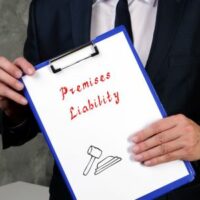A Brief Guide On Georgia’s Premises Liability Laws

Simply put, premises liability is a legal doctrine in America that declares a property owner is responsible for injuries sustained on their property due to their negligence. In the U.S., all property owners are required to make a reasonable effort to maintain safety on their premises.
If you were injured in Georgia on a property because of the property owner’s negligence, you might be eligible to file a premises liability claim. A qualified Georgia unsafe premises or premises liability attorney can help you determine whether or not you have a valid case.
It is important to note that premises liability laws vary from state to state. Therefore, a particular premises liability law that applies in another state might not apply in Georgia. Because of this, it is crucial that you understand the specific premises liability laws that apply to Georgia.
First, under Georgia law, a property owner or occupier is legally obligated to exercise “ordinary care” to keep their property safe for visitors. However, the responsibility to exercise “ordinary care” depends on the type of visitor in question.
According to the law, there are three main types of property visitors. They are:
- Invitees
- Licensees
- Trespassers
Invitees
When, for example, your friend verbally tells you to visit them, you go into their house as an invitee. Also, when you walk into a store with an open entrance, you walk in as an invitee. Generally, you are an invitee when you receive an “express or implied” invitation from a property owner.
In Georgia, property owners owe invitees the highest standard of care. A property owner is legally obligated to know about the hazards on their property, make reasonable efforts to get rid of those hazards, and warn invitees of any potential hazards.
Licensees
A licensee also receives “express or implied” consent from a property owner. But unlike an invitee, licensees enter premises for their own purposes, which usually have no connection with the property owner’s interest. A licensee is one whose visit is merely for his own interests, convenience or gratification.
In Georgia, when it comes to licensees, a property owner can only be held liable for “willful or wanton” injuries, which are injuries sustained due to a reckless act on the property owner’s part.
Trespassers
A property owner does not owe a legal duty of care to trespassers except not to cause willful or wanton injury. But there are exceptions to this duty.
Additionally, it is crucial to note that if property conditions exist that create an “attractive nuisance,” a property owner may be held responsible if a child trespasses and sustains an injury on the property. This is because, according to Georgia’s doctrine of attractive nuisance, property owners are required to take necessary steps to prevent children who trespass from hurting themselves on enticing, harmful objects or conditions.
Statute of Limitations
According to Georgia law, you have two years to file a premises liability claim. Generally, when it comes to premises liability cases and other personal injury cases, the right to file a claim usually accrues on the date of the injury. If you fail to file your premises liability claim within two years after the date of your injury, you might lose your right to recover compensation.
Contact an Atlanta Unsafe Premises Attorney
If you need more information or assistance with a premises liability case, contact an experienced Atlanta unsafe premises attorney at Carroll Law Firm today.
Resource:
law.cornell.edu/wex/attractive_nuisance_doctrine#:~:text=A%20doctrine%20in%20tort%20law,by%20the%20object%20or%20condition.
